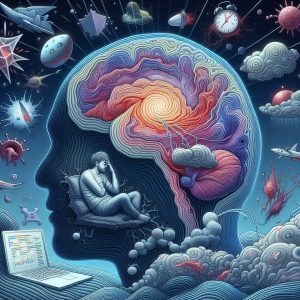The project at a glance
-
Start date:01 Jan 2018
-
Duration in months:72
-
Funding:Fonds National de la Recherche Luxembourg (FNR)
-
Principal Investigator(s):Claus VÖGELEAndré SCHULZ
About
Somatic symptom disorders (SSD) are characterized by enduring physical symptoms without a sufficient medical explanation; they have a high lifetime prevalence of 4.4-12.9% and are associated with a significant impairment of quality of life. Although altered interoception, the processing of internal bodily signals, is observed in SSD, the psychobiology underlying symptom generation remains, however, unclear. Learning and memory associated with physical symptoms (i.e. interoceptive learning) may represent one key mechanism to explain symptom generation. As post-learning stress may facilitate (mainly declarative) learning and memory, this project aims at investigating stress facilitation effects on interoceptive learning and memory. As SSD patients show a bias in retrospective (declarative) symptom memory, indicating a low correspondence with actually experienced symptoms, this project focuses on two non-declarative learning paradigms: classical conditioning (CC) of interoceptive signals and heartbeat perception training (HBPT), which is considered a perceptual learning paradigm. In Studies I and II, we plan to investigate the possibly enhancing effect of post-learning stress on CC of interoceptive signals and on HBPT. According to existing literature on CC of exteroceptive signals and our own pre-studies, we expect a facilitation of learning processes after post-learning stress. In Study III, we aim at addressing possible differences in facilitation by post-learning stress between low (LSR) and high habitual symptom reporters (HSR), a high-risk group to develop SSDs. The contribution of both physiological stress axes (autonomic nervous system, hypothalamic-pituitary-adrenocortical axis) will be assessed in all studies. Due to chronic stress and possible alterations in physiological stress axes in HSR, we expect that post-learning stress facilitation of interoceptive learning is stronger in HSR than in LSR. This project may elucidate if stress effects on CC or perceptual learning underlies symptom generation in SSD and it may inform future treatment approaches for SSD, such as extinction learning therapy associated with interoceptive signals.
Organisation and Partners
- Brain-Body Interaction
- Department of Behavioural and Cognitive Sciences
- Faculty of Humanities, Education and Social Sciences (FHSE)
Project team
-
Claus VÖGELE
-
André SCHULZ
Keywords
- Stress
- Somatic
- Symptom
